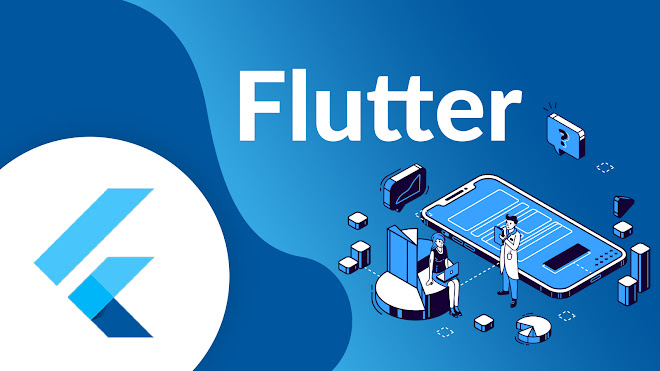Everything You Need to Know: Answering 30 Common Questions on Flutter App Development
Flutter app development is the process of creating mobile applications using the Flutter framework. Flutter is an open-source mobile application development framework created by Google that allows developers to create fast, high-performance mobile apps for iOS and Android using a single codebase.
Flutter app development differs from other mobile app development frameworks in that it uses a reactive programming model to build user interfaces, which allows for fast and flexible development. Additionally, Flutter provides a rich set of customizable widgets and integrates with popular development tools, making it a popular choice among developers.
Flutter app development uses the Dart programming language. Dart is a client-optimized programming language that was developed by Google and provides a simple and easy-to-learn syntax for developers.
The Flutter SDK is a set of software development tools provided by Google that includes everything developers need to create Flutter apps, including a compiler, a virtual machine, and a set of libraries and tools.
Flutter apps can be developed for a variety of platforms, including Android, iOS, macOS, Windows, and Linux.
Some popular IDEs for Flutter app development include Android Studio, Visual Studio Code, and IntelliJ IDEA.
The Flutter architecture is designed to provide developers with a fast and flexible way to create apps. The framework's architecture includes the Flutter Engine, the Flutter Framework, and Widgets.
In Flutter app development, widgets are the building blocks of an app's user interface. Flutter provides a wide range of widgets, including Material Design and Cupertino widgets, which allow developers to create native-looking apps.
Hot reload is a feature in Flutter that allows developers to see the changes they make to their code in real-time, without having to restart the app or lose their current state. This feature speeds up development and debugging and makes it easy for developers to experiment with different design choices.
Some benefits of Flutter app development include fast development, flexible user interface design, cross-platform development, good performance, easy-to-learn syntax, and an active open-source community of developers who contribute to its development.
Some limitations of Flutter app development include a smaller pool of developers with experience in the framework, limited support for some niche features, and a smaller range of third-party libraries and plugins compared to other mobile app development frameworks.
Dart is a client-optimized programming language that was developed by Google and is used in Flutter app development to create fast and efficient apps. Dart features a simple and easy-to-learn syntax that makes it easy for developers to get started with Flutter app development.
Flutter app development can improve app performance by using a reactive programming model to build user interfaces, which allows for fast and flexible development. Additionally, Flutter provides a fast and efficient runtime that allows apps to run smoothly and perform well.
Some key features of Flutter app development include customizable widgets, hot reload for fast development, cross-platform support, good performance, and an active open-source community.
Flutter app development can improve app user interface design by providing a wide range of customizable widgets and allowing developers to create a native-looking user.
Cross-platform app development involves creating apps that can run on multiple platforms or operating systems, such as iOS and Android. Flutter supports cross-platform app development by allowing developers to write code once and use it to build apps for multiple platforms.
Some common Flutter app development tools and frameworks include
Flutter app development supports app localization and internationalization through the use of Dart's built-in localization libraries. These libraries allow developers to easily create and manage app translations for different languages and regions
What are some popular Flutter plugins and packages that can be used in app development?
Some popular Flutter plugins and packages include:
- Flutter Firebase: A collection of Firebase plugins for Flutter that provide access to Firebase services like authentication, cloud storage, and real-time database.
- Flutter Redux: A library that provides a predictable state container for Flutter apps.
- Flutter Image Picker: A plugin that allows users to pick images from the gallery or take photos using the camera.
- Flutter Maps: A plugin that provides access to various mapping services like Google Maps and Mapbox.
- Flutter WebView: A plugin that allows developers to embed web content into their apps.
What resources are available for learning Flutter app development?
There are many resources available for learning Flutter app development, including:
- The official Flutter documentation: This includes getting started guides, tutorials, and API references.
- Flutter courses and tutorials: Many online platforms offer courses and tutorials on Flutter, such as Udemy, Pluralsight, and LinkedIn Learning.
- Flutter community: The Flutter community is active and helpful, with many developers sharing their experiences and knowledge on forums, blogs, and social media platforms like Twitter.
How can Flutter app development help with app testing?
Flutter app development provides several testing tools and frameworks to help developers test their apps. These include:
- Flutter's built-in testing framework: This framework allows developers to write unit tests and widget tests for their apps.
- Flutter Driver: This is a framework for testing the behavior and performance of Flutter apps on real devices.
- Mockito: A library that provides mocks and spies for Flutter tests.
- Flutter Test Utils: A library that provides utilities for testing Flutter widgets and animations.
How can Flutter app development help with app deployment?
Flutter app development provides several tools for app deployment, including:
- Flutter CLI: The Flutter command-line interface allows developers to build, test, and deploy their apps to different platforms.
- Flutter DevTools: A suite of tools for debugging and profiling Flutter apps that can help developers identify and fix issues before deployment.
- Continuous Integration and Deployment (CI/CD) tools: These tools, such as Jenkins and Travis CI, can be integrated with Flutter apps to automate the app deployment process.
What are some best practices for Flutter app development?
Some best practices for Flutter app development include:
- Follow the Flutter style guide: This ensures consistency and readability in your code.
- Use a state management library: This helps manage app state and improves app performance.
- Optimize app performance: This involves using efficient code, caching data, and optimizing animations.
- Use responsive design: This ensures that your app looks good on different screen sizes and orientations.
- Keep your app simple and focused: This helps ensure that your app is easy to use and understand.
Superior Codelabs offer a comprehensive range of IT services and solutions, including mobile app development, e-commerce applications, cloud hosting and consulting, UI/UX designing, branding websites, ERP/CRM, digital branding and marketing, and technology consulting. Our team of experts has the knowledge and experience to help your business succeed in the digital age. Contact us today to learn more about how we can help your organization thrive.




Comments
Post a Comment